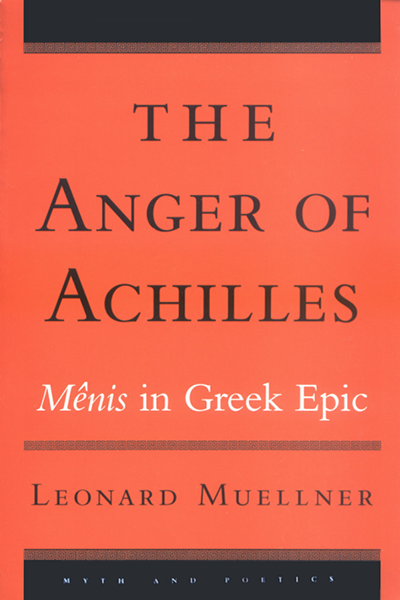The Anger of Achilles: Mênis in Greek Epic
Leonard Muellner’s goal is to restore the Greek word for the anger of Achilles, menis, to its social, mythical, and poetic contexts. His point of departure is the anthropology of emotions. He believes that notions of anger vary between cultures and that the particular meaning of a word such as menis needs to emerge from a close study of Greek…
Leonard Muellner’s goal is to restore the Greek word for the anger of Achilles, menis, to its social, mythical, and poetic contexts. His point of departure is the anthropology of emotions. He believes that notions of anger vary between cultures and that the particular meaning of a word such as menis needs to emerge from a close study of Greek epic. Menis means more than an individual’s emotional response. On the basis of the epic exemplifications of the word, Muellner defines the term as a cosmic sanction against behavior that violates the most basic rules of human society. To understand the way menis functions, Mueller stresses both the power and the danger that accrue to a person who violates such rules. Transgressive behavior has both a creative and a destructive aspect.
This is an updated online edition of a book originally published in 1996 as part of the Myth and Poetics Series by Cornell University Press.
Available for purchase in print via Cornell University Press.
Use the following persistent identifier: http://nrs.harvard.edu/urn-3:hul.ebook:CHS_MuellnerL.The_Anger_of_Achilles.1996.
Copyright, Cornell University Press. Published here online with permission.

